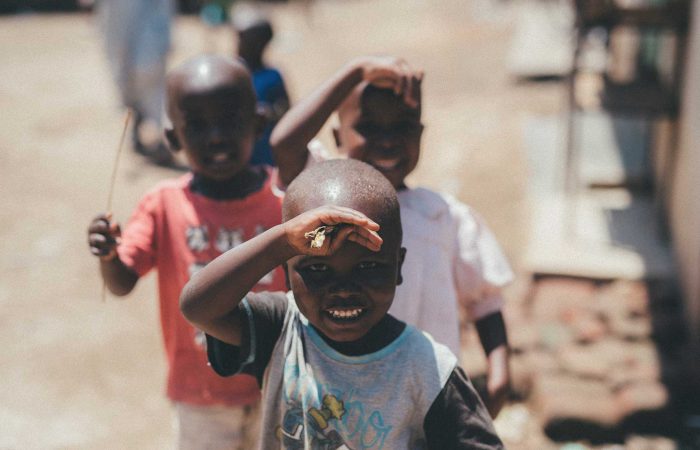 “The issue of climate change is now the worst threat facing humanity,” declared Chebet Maikut, Commissioner from the Climate Change Department, at a youth workshop on Thursday, June 16. The theme of the event, organized by Oxfam and Climate Action Network Uganda, was “Accelerating young people’s leadership in the fight against climate change,” with a focus on gender equity. As Mr. Maikut pointed out, Uganda is already suffering the dramatic effects of global warming, but every smog cloud has a silver lining. The workshop featured several young leaders who shared their green innovations and encouraged their fellows to start their own eco-friendly ventures.
“The issue of climate change is now the worst threat facing humanity,” declared Chebet Maikut, Commissioner from the Climate Change Department, at a youth workshop on Thursday, June 16. The theme of the event, organized by Oxfam and Climate Action Network Uganda, was “Accelerating young people’s leadership in the fight against climate change,” with a focus on gender equity. As Mr. Maikut pointed out, Uganda is already suffering the dramatic effects of global warming, but every smog cloud has a silver lining. The workshop featured several young leaders who shared their green innovations and encouraged their fellows to start their own eco-friendly ventures.
James Kakeeto, CEO of Creation Energy, has taken two problems – that Kampala alone generates 800 tonnes of waste every day; and that energy production and use are huge contributors to greenhouse gases, which are causing climate change – and he has tapped into the vast potential he sees for clean, sustainable, low-carbon energy from waste. His business transforms garbage into briquettes for cooking and heating, which last longer and generate less smoke than charcoal. Organic waste can also be turned into low-emissions biofuels for automobiles and generators, and can produce biogas including methane and carbon dioxide.
Another technology presented at the workshop was the vermiculite eco-stove. More than 3 billion people worldwide cook on open fires or with charcoal, which is extremely damaging to both the environment and human health: over four million people die every year from illnesses attributable to indoor smoke inhalation. Cutting trees for firewood contributes to deforestation, which is happening at an alarming rate in Uganda. By using improved cook-stoves instead, a single bag of charcoal can last a family of 5 or 6 for six months. Consequently, women do not need to spend as much time looking for firewood or cooking, and children do not need to miss school to help them.
 These are the kinds of business ideas that the Uganda Industrial Research Institute is looking for. The government institute supports entrepreneurs in technology who need specialized skills training or help with research and development to get their concepts off the ground. In the past, it has facilitated enterprises such as bioethanol and biogas production and smart solar dryers. Dr. Kamugasha, director of the institute’s Technology Development Centre, invited youth to contact or visit UIRI to open a dialogue and eventually develop a project proposal. Innovation and skills, he asserted, are the keys for turning climate change-related challenges into market opportunities for mitigation- and adaptation-based solutions.
These are the kinds of business ideas that the Uganda Industrial Research Institute is looking for. The government institute supports entrepreneurs in technology who need specialized skills training or help with research and development to get their concepts off the ground. In the past, it has facilitated enterprises such as bioethanol and biogas production and smart solar dryers. Dr. Kamugasha, director of the institute’s Technology Development Centre, invited youth to contact or visit UIRI to open a dialogue and eventually develop a project proposal. Innovation and skills, he asserted, are the keys for turning climate change-related challenges into market opportunities for mitigation- and adaptation-based solutions.
Starting environmentally-friendly businesses is only part of the solution: youth also need to engage in activism and demand real action on climate change, according to Colline Saabwe from Youth Plus Policy Network. He called for young Ugandans to hold the government responsible for the promises they made last December in Paris, when 177 states agreed to “holding the increase in the global average temperature to well below 2°C above pre-industrial levels and pursuing efforts to limit the temperature increase to 1.5°C above pre-industrial levels, recognizing that this would significantly reduce the risks and impacts of climate change.” Uganda signed the Paris Agreement on April 22, 2016 – Earth Day – although it will not enter into force until it has been ratified by 55 Parties accounting for at least 55% of total greenhouse gas emissions.
Since youth, and particularly young women, are especially vulnerable to the effects of climate change, they must be leaders in the fight against it, many of the speakers at the Oxfam and CAN-U workshop emphasized. Whether through innovation, political activism, or changing one’s own lifestyle for a lighter environmental footprint, everyone has a part to play.
By Vicky Coo
FRA Intern


